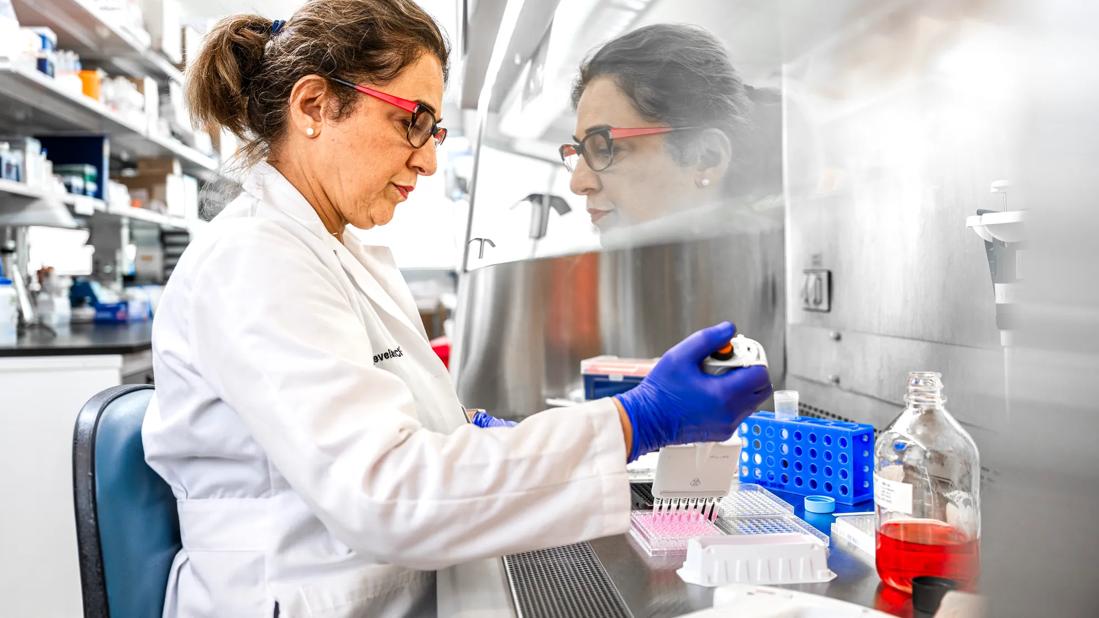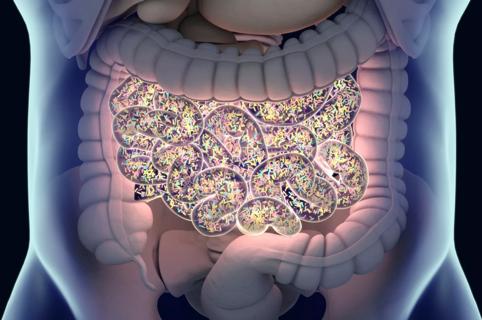Hazen group to pursue research programs in atherosclerosis, thrombosis, obesity

The National Institutes of Health (NIH) has awarded more than $12 million to Cleveland Clinic researchers to study the critical link between gut microbial pathways and the development of cardiometabolic diseases.
Advertisement
Cleveland Clinic is a non-profit academic medical center. Advertising on our site helps support our mission. We do not endorse non-Cleveland Clinic products or services. Policy
The researchers are led by Stanley Hazen, MD, PhD, Director of the Center for Microbiome and Human Health in Cleveland Clinic’s Lerner Research Institute and Co-Section Head of Preventive Cardiology and Rehabilitation in Cleveland Clinic’s Miller Family Heart & Vascular Institute.
He and his collaborators on this work — J. Mark Brown, PhD; Zeneng Wang, PhD; Adeline (Lynn) Hajjar, DVM, PhD; and Joseph DiDonato, PhD, all of Lerner Research Institute — will explore the concept that gut microbes act as a key endocrine “organ” that converts digested nutrients into chemical signals that function like hormones, creating physiological changes in humans. The researchers will focus on specific novel pathways linked to atherosclerosis, thrombosis and obesity, as well as the participation of specific gut microbe-driven pathways in increased susceptibility to cardiovascular and metabolic diseases.
The new research program is the first “Program Project” grant funded by NIH focused on the gut microbiome and its links to human health and disease. The program will consist of three specialized projects and four supporting cores. The projects will:
The three projects will be led by Drs. Hazen and Brown from Cleveland Clinic along with Michael Fischbach, PhD, of Stanford University. The four supporting cores will be led by Drs. Hazen, Brown, Wang and Hajjar.
Advertisement
“We are only beginning to understand the critical links between the gut microbiome and heart disease,” says Dr. Hazen. “We are grateful to the NIH for this funding and excited about the potential of this research to open up new avenues for improving health and combating cardiovascular disease.”
Dr. Hazen and his team have made pioneering discoveries in atherosclerosis and inflammatory disease research, including the seminal discovery linking gut microbial pathways to cardiovascular disease and metabolic diseases, including atherosclerosis, thrombosis, heart failure and chronic kidney disease. He and Cleveland Clinic cardiologist W.H. Wilson Tang, MD, together with two European colleagues, summarized these and related discoveries in a major “state-of-the-art review” earlier this year in the Journal of the American College of Cardiology (2019;73:2089-2105).
Central to those discoveries was the Hazen group’s demonstration that TMAO (trimethylamine N-oxide) — a byproduct of gut bacteria formed during digestion — contributes to the development of cardiovascular disease. High blood levels of TMAO have been shown to be a powerful tool for predicting future risk of heart attack, stroke and death, according to previous research initially spearheaded by Dr. Hazen and his team, and subsequently replicated around the world. TMAO testing is now widely available and in clinical use as a result.
The team also recently reported the development of a new class of drugs that target the TMAO pathway and reduce atherosclerosis and thrombosis potential in preclinical models. “As part of the Program Project, we are seeking to further develop therapeutics that leverage new insights into the mechanistic links between the gut microbiome and cardiometabolic diseases,” Dr. Hazen notes.
Advertisement
Advertisement

First full characterization of kidney microbiome unlocks potential to prevent kidney stones

Researchers identify potential path to retaining chemo sensitivity

Large-scale joint study links elevated TMAO blood levels and chronic kidney disease risk over time

Investigators are developing a deep learning model to predict health outcomes in ICUs.

Preclinical work promises large-scale data with minimal bias to inform development of clinical tests

Cleveland Clinic researchers pursue answers on basic science and clinical fronts

Study suggests sex-specific pathways show potential for sex-specific therapeutic approaches

Cleveland Clinic launches Quantum Innovation Catalyzer Program to help start-up companies access advanced research technology